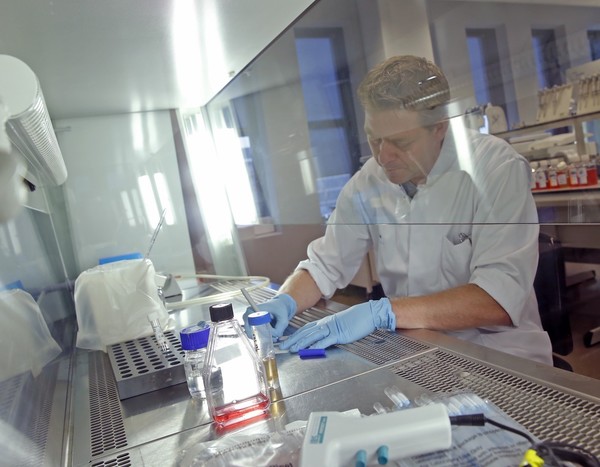Quantitative in vivo imaging of heart failure
The HF-IMAGE project brings together molecular biologists, chemists and IT experts in advanced and automated image processing. Together, they aim to improve heart failure management through the development of quantitative imaging technologies for early detection of heart failure (HF).
HF is a serious medical condition that is associated with high morbidity and mortality and a growing problem due to the increasing ageing population. Available treatment options for HF are insufficient, since they do not improve and/or restore cardiac function. Moreover, the heterogeneity of HF patients requires personalised options for optimal management. Currently, good experimental models and biomarkers for experimental and clinical research in HF, as well as patient stratification, are lacking providing a solution to the identified problems.
The availability of new treatment options makes it increasingly important to develop diagnostic tools for early diagnosis of HF. Cardiac fibrosisis among the most important underlying causes of HF, and is characterized by inflammation, overexpression of pro-fibrotic signalling pathways (platelet-derived growth factor-β (PDGF-β), transforming growth factor- β (TGF-β), the formation of excess fibrous connective tissue, and excessive numbers of myofibroblasts. The detection of cardiac fibrosis is of great importance and predictive value for diagnosis of HF.
A validated and standardised experimental HF model will be established in this project. After this project, these models combined with quantitative imaging and a diagnostic probe offer great opportunities for exploitation as a drug development platform for HF. Furthermore, a novel clinical non-invasive imaging method will be developed for detection of cardiac fibrosis as an early biomarker for HF, based on a proprietary radiolabeled peptide. This biomarker will be applicable to optimise the clinical and therapeutic management of several groups of HF patients.




